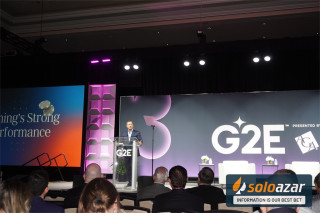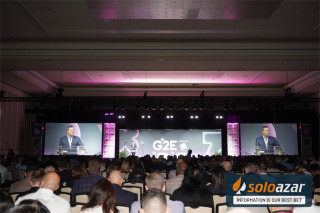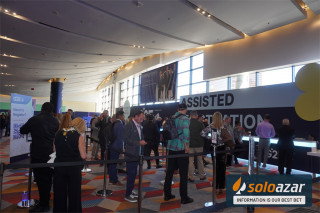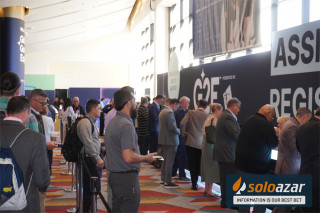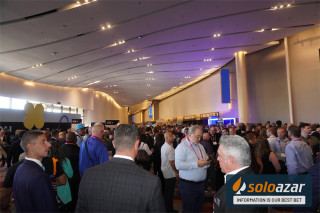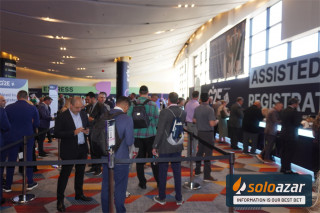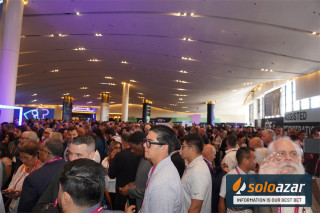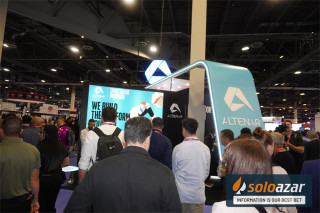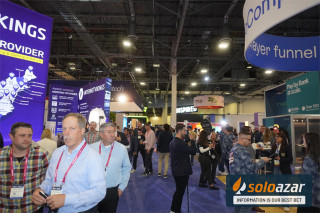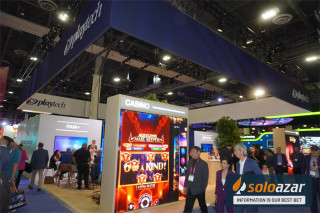Regulatory changes and their profound impact on industries linked to international trade in Argentina, by Tomás Galarza
2 minutos de lectura
(Buenos Aires).- Tomas Galarza, International Business Development, ASAP, speaks in this article about the regulatory changes that have been made in Argentina in the last 10 months and about their impact in the import and export sector in Argentina.

Ten months have passed since Javier Milei shocked political analysts around the world after what was supposed to be, according to former President Cristina Kirchner, a “three-thirds” election. Two months later, Milei came to power carrying out what he described as the most ambitious adjustment plan in Argentine history.
Just 10 days after taking office, Decree of Necessity and Urgency 70/2023 was presented, which modified, among other points, the Argentine Customs Code. Among the most important changes, the Executive Branch could no longer prohibit exports, companies were no longer required to operate with customs brokers, and the Registry of Importers and Exporters was eliminated. In addition, the infamous SIRA was replaced by the SEDI (Statistical Import System), simplifying approvals and reducing the discretion of customs processes.
These changes had a profound impact on industries linked to international trade. The gaming industry, which had long been hampered by restrictions and inconsistent approval processes, was one of the most optimistic sectors in the face of promises of deregulation. While the most optimistic plans such as the release of the cepo, the closure of the Central Bank, or the elimination of the “PAIS” tax have not yet taken place, the new government has implemented more than 70 regulations that have already fundamentally changed the nature of Argentine imports and exports. How has this affected the gaming industry?
First, the reduction in the time required to access the exchange market for import and export payments was perhaps the most visible aspect of deregulation. First, the BCRA announced that freight and insurance included in the condition of sale could be paid within 30 calendar days from the customs entry of the goods. A month later, the decision was made to reduce the time required to pay for imports of these goods by half.
From now on, instead of 360 days, importers had to wait 180 days from the registration of customs entry to make these payments. Then, the period was reduced to 120 days and, a month later, to 90 days. On September 19, it was finally decided to reduce this period to 60 days. In September, the country tax rate for international freight services and the import of most goods was reduced to 7.5% as a sign of good faith for importers.
On the other hand, although the import of these luxury goods (slot machines, high-end cars and motorcycles, watches, etc.) continues to be taxed at the 30% rate, the 2025 Budget project confirms that the tax will not be in effect from December 23, encouraging the reduction in costs of imported products promised by the president before the Argentine Industrial Union. In any case, there are doubts about how the payment of advances will be resolved, since at the time of importing 95% of the PAIS tax is paid, which is deducted from the final payment with the purchase of foreign currency. If the tax is eliminated, importers will be at the mercy of a mechanism that, to recover differences, has left much to be desired in the past.
Eight months later, the initial results show mixed results. On the one hand, exports increased by 14.8%, Argentine stocks are showing an upward trend, and the exchange rate rise is finally stabilizing. On the other hand, Argentina's GDP fell by 3.4% in the first half of the year, and the trade balance continues to show a drop in imports of at least 26% so far in 2024. In a sector that depends on the import of equipment and parts such as slot machines, this is driving the call for greater regulatory flexibility.
Along with the elimination of the PAIS Tax, pressure is growing to eliminate the “cepo”. Even so, talking about it in October is a bit hasty while the basic conditions mentioned above are not met. For the gaming industry, uncertainty about access to foreign currency calls into question the viability of local expansion projects in a gaming market that, globally, projects an increase in profits of 58% by 2029. Even so, the BCRA calls for calm while it increases reserves to the desired level to give free rein to the free competition of currencies, without this necessarily causing a run on the exchange rate.
Almost a year after the presidential elections, the initial measures of the new government brought strong expectations in a sector with potential for expansion at a global level. The Malvina Computer System, a platform used by Customs to control the country's imports and exports, perhaps reflects the optimistic data: Between July and August alone, the same amount of slot machines were imported as between January and June.
In a scenario of deep debureaucratization, certainty in payment terms, and promises of improvement in the short and long term; it is not surprising that investors in the gaming industry look to Argentina with eagerness in search of new opportunities. The challenge remains to see if the government can sustain the initial push for deregulation, delivering the coup de grace with the definitive elimination of the PAIS tax, the shortening of payment terms and, finally, the elimination of the exchange rate restriction.
Categoría:Analysis
Tags: ASAP,
País: Argentina
Región: South America
Event
G2E - Las Vegas 2025
06 de October 2025
CT Interactive on Innovation, Networking, and Market Growth at G2E 2025
(Las Vegas, SoloAzar Exclusive).- The global gaming industry marked G2E’s 25th anniversary with a major gathering in Las Vegas. CT Interactive stood out for its innovative product development and international growth strategy. Account Manager LATAM at CT Interactive, Roberto Muñoz, shared insights on G2E’s importance, emerging trends, and the company’s collaborative expansion efforts.
Thursday 30 Oct 2025 / 12:00
Atlaslive Explored the Future of Gaming in Latin America at Recent G2E 2025
(Las Vegas, SoloAzar Exclusive).- Bruno Almeida, Head of Sales LATAM at Atlaslive, attended G2E for the first time to explore how land-based and online gaming are converging. His experience highlighted key trends shaping the Latin American market, from immersive casino innovations to strategic networking and regulatory insights.
Monday 27 Oct 2025 / 12:00
G2E 2025: Cristian Galarza, ASAP Director Explains the Importance of Attending the Event
(Las Vegas, SoloAzar Exclusive). - After attending the 25th anniversary edition of G2E in Las Vegas, ASAP’s director shares his perspective on the evolution of the industry, driven by digitalization, efficiency, and the creation of international networks that foster new business opportunities.
Tuesday 28 Oct 2025 / 12:00
SUSCRIBIRSE
Para suscribirse a nuestro newsletter, complete sus datos
Reciba todo el contenido más reciente en su correo electrónico varias veces al mes.


















